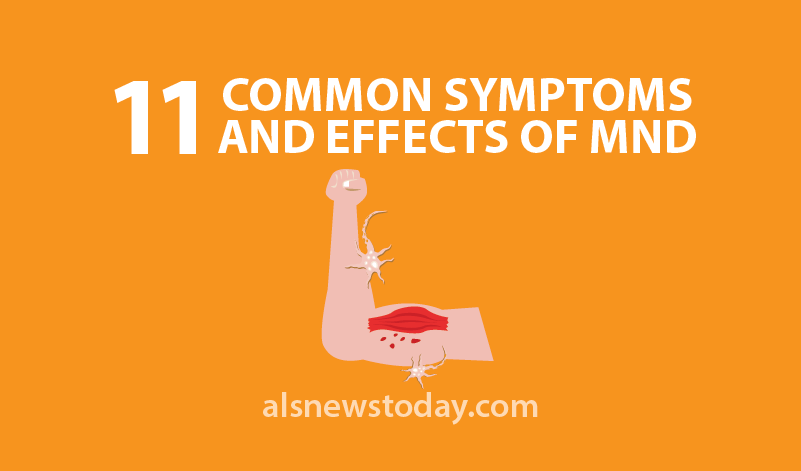11 Common Symptoms and Effects of Motor Neurone Disease
Written by |

According to the Motor Neurone Disease Association, here are some common symptoms and effects of MND:
- Discomfort and pain: although they do not come from MND directly.
- Muscle cramps and spasms: which may be eased by changing positions. If you feel these changes are not enough, talk to your doctor.
- Stiff joints: some slow and careful exercise may help. Talk to a physiotherapist and ask them to give you an exercise programme adapted to your own needs.
- Incontinence: if mobility is considerably restricted incontinence may happen although this is not usual with MND.
- Bowel problems: although not usually associated with MND, it is possible for constipation to occur in cases of diet changes and/or restricted mobility. Also, in some cases, the patient may experience diarrhea due to a severely constipated bowel.
- Speech and communication issues: these can occur in some MND patients. If this is the case, find a speech and language therapist (SaLT) to help with communication.
- Eating and drinking difficulties: if swallowing is affected, the patient may experience difficulties in eating and drinking. A speech and language therapist (SaLT) and a dietician may help with these conditions.
- Saliva and mucus issues: are other symptoms associated with difficulty in swallowing. Saliva may pool in the mouth or it may become sticky and thick with mucus.
- Coughing and a feeling of choking: this can happen if saliva or food gets lodged in the airway. A speech and language therapist (SaLT) may be able to help.
- Breathing difficulties: these may occur due to the respiratory muscle weakness. In these cases, a breathing assessment may be necessary.
- Cognitive changes: Some MND patients may feel some difficulties with concentration, memory, language or learning. Sometimes, these may be quite subtle while in other cases it may be more pronounced and noticeable.
Learn more about ALS here: https://bit.ly/ALSNewsToday
ALS News Today is strictly a news and information website about the disease. It does not provide medical advice, diagnosis or treatment. This content is not intended to be a substitute for professional medical advice, diagnosis, or treatment. Always seek the advice of your physician or other qualified health provider with any questions you may have regarding a medical condition. Never disregard professional medical advice or delay in seeking it because of something you have read on this website.





